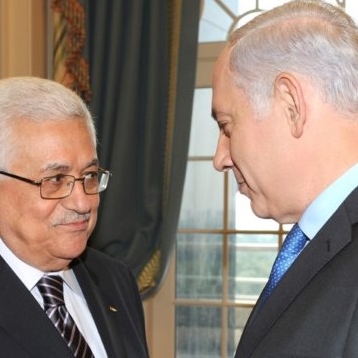
News

Middle East peace – is it action replay?
PAULA SLIER
Israelis insisted there be no preconditions; Palestinians in turn wanted a state of their own along 1967 borders with Jerusalem as the capital. The right of return for Palestinian refugees was also a contentious issue.
I reported with all the drama and suspense that goes into good television news journalism – would either side give in? What would happen? What wouldn’t happen? A few years later there I was, at it again, reporting on failed talks, the possibility of new ones and what all of it meant. Then a few years on… you guessed it.
So, when it was announced that Palestinian Authority President Mahmoud Abbas would be heading to Washington next week for talks, the thought flashed through my mind to pull those old tapes and consider re-running them.
Reporting on the Israeli-Palestinian peace process has become predictable and over the years nothing much has changed – the issues, the objections, the frustrations are the same, if not more. One sobering difference, though, is that I’ve got noticeably older and so tape reruns wouldn’t work!
This month, three years ago, the last US-sponsored peace talks between the sides finally broke down after nine months of delicate negotiations. The deep divides over settlement construction and what should be the future borders of a Palestinian state, proved in the end insurmountable.
And while these issues still have not been resolved, as Abbas gets ready to leave for Washington, there’s a very different energy in the air. There’s certainly a different president waiting to welcome him in Washington.
Donald Trump is a strong leader – like him or abhor him, he’s certainly shown he’s not one to back down – as his recent airstrikes in Syria, his threats against North Korea and his squaring up to Russian President Vladimir Putin have demonstrated.
In a telling remark, the Palestinian Authority president recently said of the upcoming visit: “We are glad that now the US administration listens about us from us, and not from third parties…”
It could very well have been a jab at Trump’s predecessor, Barack Obama, who by the time he stepped down, had Israelis and Palestinians agreeing on at least one thing: Obama wasn’t the man to bring peace to the sides. Of course it remains to be seen if Trump is.
But Abbas needs him. Trump’s brief phone call last month during which he invited the Palestinian leader to the White House helped lift Abbas out of political isolation, albeit that Trump and Israeli Prime Minister Benjamin Netanyahu had already met in February and have spoken twice over the phone.
Trump has also already hosted Egyptian President Abdel Fattah al-Sisi and King Abdullah II of Jordan.
Abbas is in a weak position domestically because of the deep internal divisions between the West Bank over which he governs and the Hamas-ruled Gaza Strip. Last year, Saudi Arabia cut off funding to his Ramallah-based government that left the cash-strapped Palestinian Authority without millions of much needed dollars.
A secret summit in Aqaba last year, organised by Washington and during which Netanyahu met with Egyptian and Jordanian leaders in an effort to hammer out a regional peace push (it failed) was held without Abbas’ knowledge. Add to this the violence that is consuming the Arab world at the moment and which has left it weak – and Abbas isn’t left with too many bargaining chips.
There are indications that during the meeting Trump will present Abbas with a document calling on the Palestinians to agree to renew negotiations with Israel without preconditions and without an Israeli commitment to freeze settlement construction. In exchange Trump will not act to transfer the American embassy from Tel Aviv to Jerusalem. Neither side has confirmed these reports.
Meanwhile, Abbas’ on-the-record remarks have been that he is open to meeting with Netanyahu in Washington under the patronage of Trump, but that nothing short of a complete settlement freeze remains a deal-breaker.
It will be interesting to see how Trump – who isn’t exactly renowned for his delicate negotiating skills – manages to get over this hump. In true Trump fashion he might do something that right now is impossible to predict.
No doubt, Abbas will find himself under pressure from the new American president and his vision for the Israeli-Palestinian conflict – which is closer to the Israeli vision than the Palestinians’. Given Abbas’ weak ability to bargain for the Palestinian side, there could be some agreement on the cards for a resumption of peace talks rather than a permanent agreement. But that alone would be a step in the right direction. Maybe, just maybe, I can finally throw out those old tapes.
Paula Slier is the Middle East Bureau Chief of RT, the founder and CEO of NewshoundMedia and the inaugural winner of the Europcar Woman in Leadership Award of the South African Absa Jewish Achievers.




